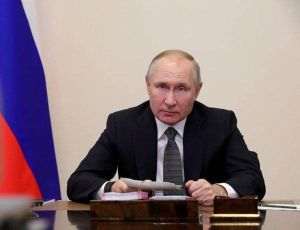Mircea Ursache, the vice-president of the Financial Oversight Authority (ASF), has announced yesterday that the institution will sanction shareholders acting in concert, prior to the general shareholder meetings scheduled next month at the SIFs, and the voting rights of the groups acting in concert will be capped at 5% - the holding cap set by the law.
He said: "Regardless of what happens, as long as the current legislation exists (ed. note: the 5% holding cap in the SIFs), any relationship between shareholders, as innocent as it may seem, will be the object of acting in concert and the suspension of the voting rights".
The ASF official warned: "Our information (ed. note: of the ASF) has a high degree of accuracy".
According to Mr. Ursache, the ASF recently notified the criminal investigation bodies, after an investor reported an acting in concert, due to the absurd price that a stock deal was performed at.
Dan Paul, the president of the Association of Brokers, issued a public challenge to Mircea Ursache: "I am curious if the sanctions for acting in concert for the general shareholder meetings of the SIFs, will also include the Veranda group, without any connection to any mall in Bucharest. I am curious if that acting in concert sanction will happen. If not I will try to help you on that through official avenues".
In August 2015, SIF Moldova took over the position of SIF Oltenia in the project of the Veranda mall, developed by the Pogonaru family in the Obor area of Bucharest.
At the time, the management of SIF Moldova announced that its subsidiary - Real Estate Asset SA - acquired 6,555,211 shares of Prodplast Imobiliare (PPLI) which developed the Veranda mall, worth 39.9 million lei and 643,859 shares in Nord worth 4.8 million lei.
The Pogonaru-Ciurezu conflict had previously extended to the plan for the financing of the "Veranda" mall as well.
"The creation of a sovereign investment fund - an absolute necessity for the country's development"
Romania can currently hope for the emerging status, says Mircea Ursache, the vice-president of the Financial Oversight Authority (ASF), who mentioned that once that status is achieved, "investors need to be offered something".
He says: "Whereas a few years ago we lost by a whisker to an Asian country, today I think that by meeting the criteria that international ratings firms have set, we can hope to getting access to the emerging status level. But with what? Regulations alone aren't enough. With an oversight system based on risk, under international consulting, it is not enough. You have to give investors something".
The ASF official mentions that Poland made a 2.6 billion Euros deal some time ago, by buying the 32.8% stake which UniCredit Italia sold in PKO Bank, the second largest Polish bank. "Poland bought that bank through the government fund and an insurance company fully owned by the state, with the executive thus becoming the biggest shareholder of that bank", Mr. Ursache says.
According to him, over the last few days, the ASF had meetings with AmCham, the Coalition for Romania's Development, the Coalition for Romania's Modernization, the EBRD, for talks concerning the government's need to continue the listings, or the creation of a sovereign fund.
"I think that today, the observations and proposals that all of these partners have offered show that the creation of the sovereign investment fund is not just an item in a governing program, but an absolute need for Romania's development", warns Mircea Ursache, who stresses that the ASF, as regulator, wants a sovereign fund, that would be active on the capital market, not one that operates as a commercial company that only manages some blocks of shares.
Out of all the privatization proceeds, almost 7 billion Euros, according to the NBR, there are 2.2 billion left in the accounts of the State Treasury, which will obviously not be enough to cover the investments of 10 billion Euros which the Romanian governments plans to make by 2020.
"I do not want an original national legislation on the stock market, but a national legislation that is tied to the European one"
According to ASF vice-president Mircea Ursache, the most important thing that the capital market is currently focused on is, , the application of the MIFID II European directive. "The draft law has been submitted to the Parliament, and the debates will begin within the specialized commissions", he said. "We are ending a legislative chapter which will bring about complete changes in terms of the national regulation, meaning that all of our legislation will be an European one. I do not want an original national legislation on the stock market, but a national legislation that is tied to the European one. That's what MIFID II does".
MIFID II brings about strict requirements for portfolio management, said Mr. Ursache. "Aside from the fact that it is a challenge for the capital market, MIFID II will involve large financial and human resources for everybody. Basically the compliance costs for the new requirements will be significant".
According to the ASF official, another major concern of the authority at the moment are the problems of the market, mainly the 1st Tier of the Central Depository.
"Last week, we discussed this issue with the EBRD representatives as well. We have four initiatives for the resolution of the 1st Tier issue. There are four options aside from the ones proposed by the BSE and the Association of Brokers, one actually proposed by the EBRD: the creation of a sovereign fund, that would be managed by a fund manager with an international reputation and which would actually take over the management of the existing shares in all inactive accounts", said Mr. Ursache, who added: "A second option concerns the SIFs directly: all the inactive funds of the 1st Tier of the Depository be used by the SIFs. There is another option launched in the market laboratories, which stipulates the AAAS taking over all inactive accounts".
Mircea Ursache said: "I am proposing that in the near future we have a debate on which option should be chosen, so that we can take to the Parliament the most needed proposal, which would resolve the issue of the almost 250 million Euros that are frozen in inactive shares held in the Central Depository".
According to the ASF official, the SIFs hold assets of over 7.5 billion lei, "but also a history full of controversies". He said: "Today, the SIFs are no longer those companies in which the holders of vouchers from the mass privatization program hold the majority. The core question is: is it still necessary for these funds to be regulated through the law, against the will of the shareholders? Can the state still intervene in their decision making process? Can the right of ownership be obstructed through a law that is today unconstitutional? What is the reason for a market not to honor free competition, where we have a fund which has no holding cap and then we have the SIFs, where the government, through an old law, obstructs the shareholders' decision making?"
Mr. Mircea Ursache emphasizes that there are no reasons for concern over various interest groups taking control: "From that point of view, I am the one who oversees things and I don't see that kind of transactions occurring following such a decision. I can assure you that the law will have express provisions concerning the appearance of shares hidden or parked by some investors".
Mr. Ursache stressed that the ASF has access to any bank account, to any transfer in the international banking system: "We know at any moment the acquisitions, transfers, and reimbursements of money to investors. There is a signal that I am sending very clearly: no abuse, no intervention, no pressure will be done once a law is passed concerning the freedom of the owners of the SIFs, the shareholders, to decide on their internal issues, such as the holding cap".
Changes concerning the evaluations and interviews of candidates for executive positions in the entities overseen by the ASF
Mr. Ursache said that last week, the ASF succeeded, "with the help of the market and the firm intervention of the market officials", to change and approve the new procedure concerning the interviews of key persons for top positions in entities overseen by the ASF.
"The validation interview, together with the analysis of their resume and of their good professional reputation will be proposed by the sector, and the evaluation commissions will only be appointed by the vice-president of the sector, based on the importance of the position that we are evaluating", said Mircea Ursache, who added: "The market pays a lot of attention to our issues, the reactions that we got to a procedure (ed. note: the evaluation procedure) are useful".
The regulations concerning the evaluation of executive positions has been challenged by the market, especially after the ASF did not authorize Mihai Fercală as head of SIF Transilvania, in October 2016, claiming that he wasn't familiar with the activity of the company. The Brokers' Association challenged the regulation in question in court.
"I don't think it's the job of the ASF to get involved in the investment policy"
"I don't think it's the job of the ASF to get involved in the investment policy, as long as it is done correctly, to the shareholders' benefit, for profit", said Mr. Ursache, who stressed: "The issue of buying back shares, reducing the share capital, the distribution of money to shareholders is being heavily discussed lately, as a result of the policy of the Proprietatea Fund. From my point of view what is happening is legal.
Theories such as «let's look into a solution to tax this distribution just to make that money be paid out through dividends» is totally wrong. You can't tax the money that gets returned through the reduction of the share capital".
Mr. Ursache added: "I have acknowledged what the market has conveyed to me, I am analyzing this kind of proposals, including the one of limiting through a law the right to do buybacks and capital reductions to a maximum of once or twice a year, but from my point of view, the return to the introduction of barriers in the market doesn't help anybody, especially as we all want a free, European market, that gets attached to the European program to create a unified capital market, that would follow its flow and route until 2019, when that goal is achieved".
Mircea Ursache also said that he wants to develop the relationship with auditors, which is very important for the ASF, currently, in the exercising of the authority's power.
"In other European countries, the national authorities work directly with the auditors", Mircea Ursache stressed.
On the other hand, he also reminded of the law of prevention: "I have proposed that for everything that means an offense, the ASF to be part of that law as well". Mr. Ursache added: "If somebody wants to eliminate somebody from the market, through sanctions, then those sanctions need to be accompanied by the suspension of the license as well. The mere sanction does not represent the end of the operation of the overseen entities. We have to lobby with the Parliament to have the law of prevention operate when it comes to these sanctions concerning reporting".
Mircea Ursache: "Starting with March 15th 2014 so far, we have 29 tariff cuts and eliminations implemented by the ASF".

















































